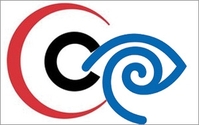 The Federal Communications Commission has delayed its review of Comcast's proposed $45 billion merger with Time Warner Cable -- which, if approved, would greatly increase Comcast's broadband
footprint. The FCC is also suspending its review of AT&T's proposed merger with DirecTV.
The Federal Communications Commission has delayed its review of Comcast's proposed $45 billion merger with Time Warner Cable -- which, if approved, would greatly increase Comcast's broadband
footprint. The FCC is also suspending its review of AT&T's proposed merger with DirecTV.
The agency said it suspended the informal 180-day countdown clocks because nine content companies -- including
CBS, Fox, Time Warner and Disney -- refused to disclose key information about their deals with cable providers. That data was requested by some commenters -- including Dish Network, RCN and Writers
Guild of America, West.
The FCC said it agreed with those companies that “their current inability to review [information] that has been submitted in these dockets significantly hampers
their ability to meaningfully comment and participate in these proceedings.”
advertisement
advertisement
That disputed information had been designated as “highly confidential,” but commenters might
still be entitled to view at least some of it. The agency intends to set new dates for the merger review after it rules on how much “confidential” information must be shared with
commenters.
If approved, Comcast's merger with Time Warner would vastly expand Comcast's broadband footprint, leaving the company as the only option for broadband greater than 10 Mbps -- the
FCC's proposed new standard -- in many U.S. homes.
The FCC's move comes several days after Reuters reported that the Department of Justice appears to be particularly interested in how
Comcast's increased broadband presence would affect video services.
Earlier this week, a group of law professors -- including Tim Wu, who coined the term “net neutrality" -- asked the FCC to block Comcast's acquisition of
Time Warner. The academics argue that the deal would provide Comcast with incentives to harm Netflix, Hulu and other companies that provide online video.
The law professors point out in a
letter to the FCC that Comcast already appears able to charge “interconnection” fees to video distributors like Netflix.
“There have been episodes of sustained congestion on
Comcast’s network,” the letter states. “When companies have paid to improve congestion issues, the congestion problems have gone away.”
The professors add: “The
merger would increase Comcast’s share of residential broadband customers to nearly forty percent, and this added size would give Comcast the power to increase the price for interconnection, and
in so doing to raise the costs of its online video rivals.”
AT&T's planned acquisition of DirecTV also has raised concerns among some advocates. Sen. Al Franken (D-Minn.) recently
asked the FCC to impose terms aimed at making sure AT&T doesn't implement policies that would hinder cord-cutting -- such as forcing consumers to accept bundled packages. “To protect
consumer choice,” he said in a recent letter to regulators, “I believe that AT&T must thoroughly articulate its commitment to stand-alone broadband pricing.”